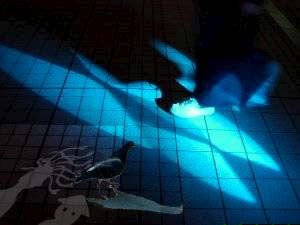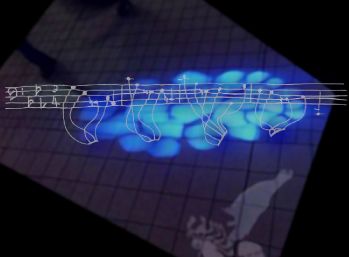|
|
 | The Story of Evolution and the Evolution of Stories: |
 |
|
We will experiment, in this course, with two interrelated and reciprocal inquiries: whether the biological concept of evolution is a useful one in understanding the phenomena of literature (in particular: the generation of new stories), and whether literature contributes to a deeper understanding of evolution. We will begin with an exploration of the basis for the
"story" of evolution as developed by biologists, move on to a consideration of the
relevance of the concept of evolution for making sense of other bodies of information
and observations, and then turn to a consideration of one literary story growing out of
another. We will ask repeatedly: Where do stories (scientific and literary) come from? Why do new ones emerge? What causes them to change? Why do (must?) some of them disappear? We will consider the parallels between diversity of stories and diversity of living organisms, and think about what new insights into evolution and literature emerge from such
considerations.
This course is predicated on an assumption that progress on the sorts of questions being considered here is significant not only in the classroom but in a broader human context as well. Hence, the course is organized to contribute to public conversation, both by having a weekly on-line forum and by the on-line publication of course materials, including student papers. In considering the appropriateness of the course for their own educational objectives, students should be aware of this assumption and associated arrangements, and of the implications and obligations of engaging in a public arena, where individuals are responsible not only for their own education but that of others as well.

|
Letter to the Editor: Beyond Literary Darwinism Photo Gallery: A Genuinely Evolutionary Experience "My Great-Grandaddy was a Monkey": A Story by Britt Fremsted "Meme": A Film by Haley Bruggemann and Eleanor Carey Class Roster Syllabus Course Forum Area Student Web Papers 1: Thinking about Biological Evolution Student Web Papers 2: Thinking about Evolution Beyond the Context of Biology Student Web Papers 3: Thinking about The Evolution of Literary Stories Final Student Web Papers: Our Own New Stories Paper Preparation and Submission Instructions for Preparing Your Final Portfolio Web Resources A Hands-On, Interactive Approach to HTML Place of the US in the World Community - Nov 04 Forum Origin of Images Course Requirements:
Discussion Notes:
|